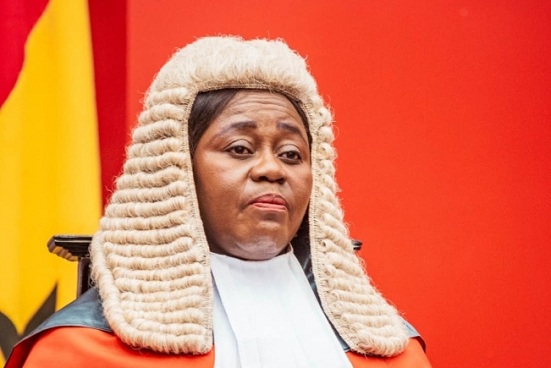The Accra High Court has kicked out Chief Justice Gertrude Torkornoo’s application for judicial review, labelling it an “abuse of court processes” and stating that the court lacked jurisdiction over the matter.
This ruling, delivered by Justice Kwame Amoako today, July 31, represents an important turn in the ongoing situation regarding the petitions for her removal from office.
The court’s decision suggests that Justice Torkornoo’s application was seen as a manoeuvre to hinder the legitimate legal processes rather than a sincere attempt to seek constitutional redress.
This decision further limits Chief Justice Torkornoo’s legal options for halting the proceedings against her.
This comes after the Supreme Court has unanimously dismissed a supplementary affidavit submitted by suspended Chief Justice Gertrude Torkonoo in connection with her application for an injunction.
In her affidavit, Justice Torkonoo claimed she had faced inhumane treatment, that her dignity had been violated, and characterised the ongoing proceedings as a “mockery of justice” and a “ruse” intended to unjustly remove her from her position.
However, the court ruled that the affidavit’s contents addressed matters that took place before the committee investigating her removal, a process that legally should be conducted in confidentiality.
A five-member panel agreed with the Attorney General’s objection, which asserted that the supplementary affidavit contravened Article 146(8) of the Constitution.
This article stipulates that proceedings related to the removal of justices must be held privately.
The Attorney General maintained that by submitting an affidavit that revealed details of the committee’s discussions, Justice Torkonoo had violated this constitutional stipulation.
In response, Godfred Yeboah Dame, the former Attorney General and legal representative for Torkonoo, argued that the affidavit was presented in a judicial setting and not made public, thus claiming it did not infringe upon Article 146(8).
Subsequently, the Supreme Court determined that the affidavit’s contents did breach the confidentiality requirements outlined in the Constitution and therefore decided to strike it from the record.





